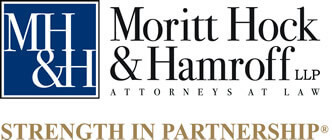The No Surprises Act: Congress Takes Aim at Surprise Medical Bills
In the closing days of 2020, Congress passed federal legislation aimed at protecting patients against surprise medical bills and facilitating payment dispute resolutions among providers and insurers. Slated to take effect on January 1, 2022, the “No Surprises Act”, part of H.R. 133, Omnibus Appropriations and Emergency Coronavirus Relief Act (the “Act”) targets three main areas: (i) surprise medical billing for emergency services, (ii) surprise medical billing for non-emergency services, and (iii) payment dispute resolution among providers and insurers. This article highlights the major components of Act.
Surprise Medical Bills
A “surprise medical bill” is a bill sent to an insured patient who unwittingly receives medical services from one or more health care providers who do not participate with the patient’s insurance carrier (i.e., an out-of-network provider). Surprise medical bills are typically comprised of two components: (i) the difference in patient cost-sharing between in-network and out-of-network providers (e.g., an insured patient may owe only a 10% copay for charges by in-network providers but 40% for out-of-network providers), and (ii) the difference between the allowed charges (i.e., the discounted charges negotiated by providers and insurance companies) and the provider’s full charge. This is often referred to as “balance billing”. Patients can receive surprise medical bills for both emergency and non-emergency services, and have historically borne the burden of these bills unless otherwise protected by state law.
Protection Against Surprise Medical Bills (Emergencies)
First, the Act will protect patients from surprise medical bills for emergency services performed by out-of-network providers. Specifically, under the new law, patients treated by out-of-network providers, such as hospitals, facilities and individual practitioners, will be required to pay only the deductibles and copayments that they would otherwise be required to pay for in-network treatment under their insurance plans. They will have no liability for any excess cost associated with the services provided by an out-of-network. Notably, protection under the Act extends to air ambulance services, which have historically resulted in hefty surprise medical bills to patients. However, the Act does not offer any protection against surprise medical bills for ground ambulances—it simply establishes an advisory committee to provide recommendations with respect to same.
Protection Against Surprise Medical Bills (Non-Emergencies)
Second, the Act will protect patients from surprise medical bills for non-emergency services provided by out-of-network providers at in-network facilities. Patients receiving non-emergency services will, in most cases, only be responsible for their in-network cost sharing amounts. However, unlike emergency services, the Acts allows specified out-of-network providers to balance bill patients for services in certain situations if, at least 72 hours prior to the provision of nonemergency services, the out-of-network provider gives the patient written notice of their network status and estimate of charges. Among the providers who are not eligible to take advantage of this carveout to the balancing billing prohibition are anesthesiologists, laboratories and radiologists.
Resolution of Insurer-Provider Payment Disputes
Third, the Act sets forth procedures for the resolution of payment disputes among insurance providers and health care providers. Because, as detailed above, patients will generally be relieved of any and all responsibility for surprise medical bills, they will not be involved in the payment dispute resolution process. Pursuant to the Act, an insurer and a provider will have thirty days in which to negotiate the payment amount of a surprise bill. If the parties are unable to reach an agreement during the proscribed time frame, the dispute will be submitted to binding arbitration. The Act enumerates a number of parameters with respect to the arbitration, including, for example, the prohibition of the use of billed charges on the part of providers, and the use of Medicaid or Medicare on the part of insurers. Notably, the Act does not contain a benchmark payment standard for the payment of medical expenses by insurers to heath care providers in emergency or non-emergency treatment situations.
New York Law
The Act supplements existing laws in a number of states, including New York, that afford patients protection against surprise medical bills. The New York Emergency Medical Services and Surprise Medical Bill Law (the “NY Law”), enacted in 2015, protects patients from surprise medical bills where: (i) a patient is treated by an out-of-network provider at an in-network facility; (ii) an in-network provider refers a patient to an out-of-network provider; and/or (iii) a patient has received emergency services in a hospital setting, including, for example, inpatient care following emergency room treatment. In the event that a patient receives a surprise medical bill from a health care provider, he or she is required by the NY Law to send an Assignment of Benefits form, together with a copy of the surprise medical bill, to his or her insurer, and thereafter, his or her insurer will negotiate directly with the health care provider. If the insurer and the health care provider are unable to reach a resolve the payment dispute, the insurer will reimburse that health care provider in an amount that it deems reasonable, and the healthcare provider may thereafter challenge the payment via the NY Law’s established independent dispute resolution process.
The attorneys at Moritt Hock & Hamroff LLP are closely monitoring new COVID legislation and can help health care providers effectively respond to the challenges presented by pandemic. If you have any questions, please feel free to reach out to our Health Care attorneys Benjamin Geizhals at (516) 880-7295 or bgeizhals@moritthock.com and Caitlyn Ryan at (516) 265-1156 or cryan@moritthock.com



